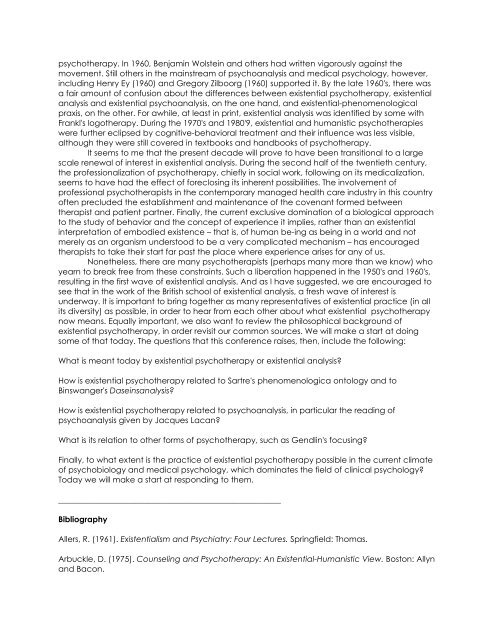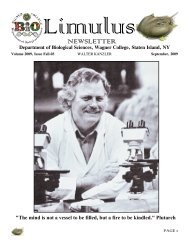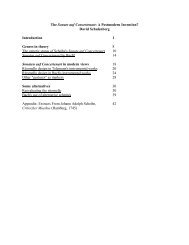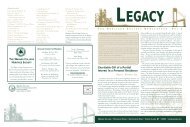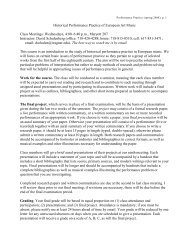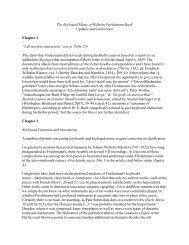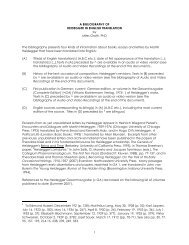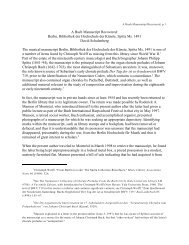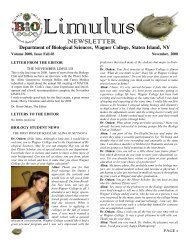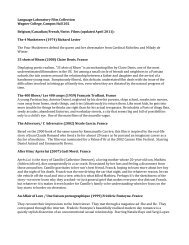SEVEN PAPERS ON EXISTENTIAL ANALYSIS ... - Wagner College
SEVEN PAPERS ON EXISTENTIAL ANALYSIS ... - Wagner College
SEVEN PAPERS ON EXISTENTIAL ANALYSIS ... - Wagner College
Create successful ePaper yourself
Turn your PDF publications into a flip-book with our unique Google optimized e-Paper software.
psychotherapy. In 1960, Benjamin Wolstein and others had written vigorously against the<br />
movement. Still others in the mainstream of psychoanalysis and medical psychology, however,<br />
including Henry Ey (1960) and Gregory Zilboorg (1960) supported it. By the late 1960's, there was<br />
a fair amount of confusion about the differences between existential psychotherapy, existential<br />
analysis and existential psychoanalysis, on the one hand, and existential-phenomenological<br />
praxis, on the other. For awhile, at least in print, existential analysis was identified by some with<br />
Frankl's logotherapy. During the 1970's and 1980'9, existential and humanistic psychotherapies<br />
were further eclipsed by cognitive-behavioral treatment and their influence was less visible,<br />
although they were still covered in textbooks and handbooks of psychotherapy.<br />
It seems to me that the present decade will prove to have been transitional to a large<br />
scale renewal of interest in existential analysis. During the second half of the twentieth century,<br />
the professionalization of psychotherapy, chiefly in social work, following on its medicalization,<br />
seems to have had the effect of foreclosing its inherent possibilities. The involvement of<br />
professional psychotherapists in the contemporary managed health care industry in this country<br />
often precluded the establishment and maintenance of the covenant formed between<br />
therapist and patient partner. Finally, the current exclusive domination of a biological approach<br />
to the study of behavior and the concept of experience it implies, rather than an existential<br />
interpretation of embodied existence – that is, of human be-ing as being in a world and not<br />
merely as an organism understood to be a very complicated mechanism – has encouraged<br />
therapists to take their start far past the place where experience arises for any of us.<br />
Nonetheless, there are many psychotherapists (perhaps many more than we know) who<br />
yearn to break free from these constraints. Such a liberation happened in the 1950's and 1960's,<br />
resulting in the first wave of existential analysis. And as I have suggested, we are encouraged to<br />
see that in the work of the British school of existential analysis, a fresh wave of interest is<br />
underway. It is important to bring together as many representatives of existential practice (in all<br />
its diversity) as possible, in order to hear from each other about what existential psychotherapy<br />
now means. Equally important, we also want to review the philosophical background of<br />
existential psychotherapy, in order revisit our common sources. We will make a start at doing<br />
some of that today. The questions that this conference raises, then, include the following:<br />
What is meant today by existential psychotherapy or existential analysis?<br />
How is existential psychotherapy related to Sartre's phenomenologica ontology and to<br />
Binswanger's Daseinsanalysis?<br />
How is existential psychotherapy related to psychoanalysis, in particular the reading of<br />
psychoanalysis given by Jacques Lacan?<br />
What is its relation to other forms of psychotherapy, such as Gendlin's focusing?<br />
Finally, to what extent is the practice of existential psychotherapy possible in the current climate<br />
of psychobiology and medical psychology, which dominates the field of clinical psychology?<br />
Today we will make a start at responding to them.<br />
_______________________________________________________<br />
Bibliography<br />
Allers, R. (1961). Existentialism and Psychiatry: Four Lectures. Springfield: Thomas.<br />
Arbuckle, D. (1975). Counseling and Psychotherapy: An Existential-Humanistic View. Boston: Allyn<br />
and Bacon.


